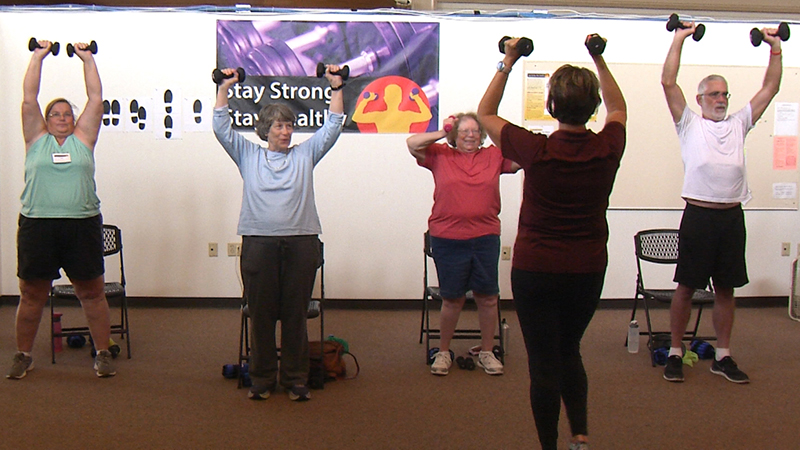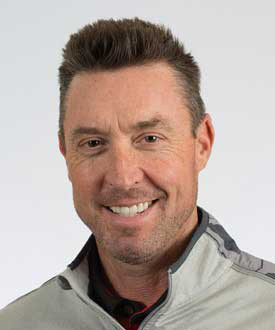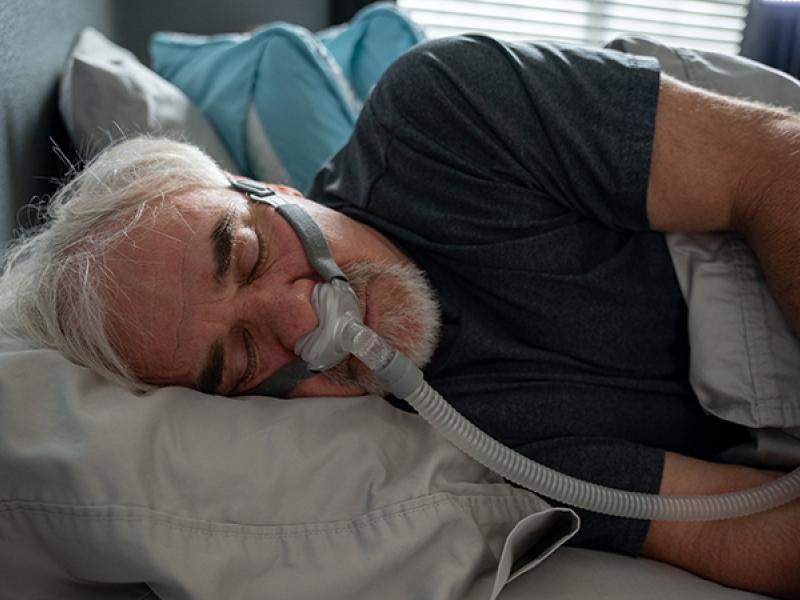
By Pate McCuien
When University of Missouri Orthopaedic Surgery Fellow Breanne Baker stopped working with athletes and started treating seniors, she wasn’t quite sure what to think. She was worried that the work might be less exciting, and she thought she would miss the competitive aspect of assisting athletes. However, she quickly discovered working with seniors is both challenging and rewarding.
“If you even have a tiny sliver of a soul in your heart, you’re going to fall in love with these people,” Baker said. “They tell you about their kids and their grandkids, and they’ve got great stories to tell if you’re willing to listen. I would definitely like to keep working with seniors throughout the rest of my career.”
However, for many older adults, it can be difficult to find safe and effective workouts. According to the CDC, only 9.7% of Americans older than 65 meet their recommendations for strength training at least two days a week. That’s where Baker and the MU Extension Stay Strong, Stay Healthy program can help. The 8-week program for older adults provides safe, structured and effective strength training to help reduce frailty, osteoporosis and the risk of falls.

Although the program has received positive anecdotal reviews, Steve Ball, a professor in the Department of Nutrition and Exercise, wanted to study its impact. Recently, researchers from the Missouri Orthopaedic Institute, Department of Nutrition and Exercise Physiology, and MU Extension and Engagement Office teamed up to study the efficacy of the Stay Strong, Stay Healthy program.
The study’s results, published in the Journal of Aging and Health, found that the program improves muscle strength, dynamic balance, flexibility and even sleep quality. Ball, who put the research team together, said the findings could help the program expand to new heights.
“These findings show people our training is evidence-based; if you do our program to the fullest of your abilities, you are going to see these improvements,” said Ball, who holds a joint appointment as a state specialist with MU Extension. “These findings will help us apply for funding to expand the program, not only here in Missouri, but other states will be coming to us to learn about the program as well.”
MU assistant extension professors Kelsey Weitzel and Kristin Miller, who also helped conduct the study and track the data, said the findings are important to the future success of the program. Weitzel noted that many senior centers are being mandated to implement programs that are evidence-based. She said the study was needed to keep the training regimen in facilities that are already using the program throughout the state.
The study found participants improved in seven markers used to assess strength and flexibility. This improvement reduced the risk for falls and associated health care costs. Researchers tracked 60 sedentary adults over the age of 60 as they completed the training. Baker said she’s observed that the training program can promote a healthy change in lifestyle.
“Many of our participants reported that after completing the program, they were more confident to go out and do other activities,” Baker said. “Prior to the study, these were all sedentary people, but after engaging in the 8-week program, they were doing other things that the other groups were not, like walking the dog and gardening.”
The program has been around for 14 years and has reached more than 15,000 older adults in five different states. Though a big part of the program is providing a service, Ball says that this program checks all of the marks that Mizzou sets out to accomplish.
“This is one of those rare programs that meets all three missions of a land-grant university: outreach, research and teaching,” Ball said. “The outreach is obviously taking the program to the citizens of Missouri and beyond; the current randomized controlled trial is evidence-based research; and, finally, we involve both undergraduate and graduate students. It would be too hard to find another program that does all of these things at this level.”
Ball said a number of researchers and clinicians helped to get the research program off of the ground, including principal investigator and professor of orthopaedic surgery Dana Duren, PhD, and co-investigators Trent Guess, PhD, associate professor of physical therapy, and Lisa Royse, PhD, qualitative research consultant on the orthopaedic surgery department’s Creative Services Team. Ball also mentioned graduate assistant Elena Doctor; interns Mikala Cessac and Betsy Embree; and finally, the physical instructors Judith Mutamba, Nichole Mobley, Susan Mills-Gray and Candace Rodman.
This article was originally published in Show Me Mizzou on September. 23, 2020





